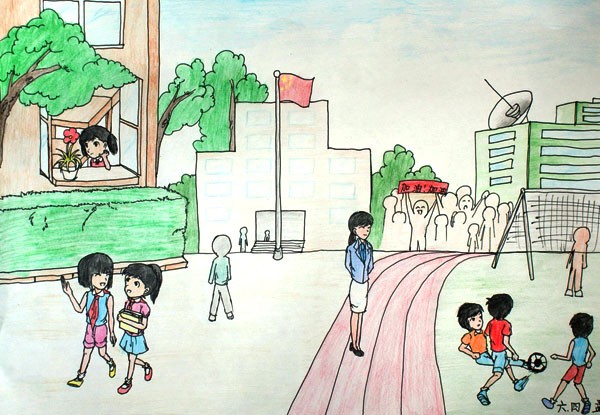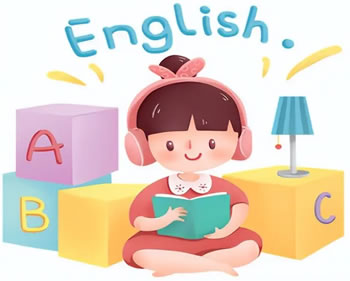
英语童话:TheButterfly蝴蝶(插图)
the butterfly wanted a sweetheart, and naturally he wanted one of the prettiest of the dear little flowers. he looked at each of them; there they all sat on their stalks as quiet and modest as little maidens ought to sit before they are engaged; but there were so many to choose from that it would be quite difficult to decide. so the butterfly flew down to the daisy, whom the french call "marguerite." they know she can tell fortunes. this is the way it's done: the lovers pluck off the little petals one by one, asking questions about each other, "does he love me from the heart? a little? a lot? or loves he not at all?" - or something like that; everyone asks in his own language. so the butterfly also came to ask, but he wouldn't bite off the leaves; instead he kissed each one in turn, thinking that kindness is the best policy.
"sweet miss marguerite daisy," he said, "you're the wisest woman of all the flowers - you can tell fortunes! tell me, should i choose this one or that one? which one am i to have? when you have told me, i can fly straight to her and propose."
but marguerite answered not a word. she resented his calling her "a woman," for she was unmarried and quite young. he put his question a second time, and then a third time, and when he still get a word out of her he gave up and flew away to begin his wooing.
it was early spring; the snowdrops and crocuses were growing in abundance. "they're really very charming," said the butterfly. "neat little schoolgirls, but a bit too sweet." for, like all very young men, he preferred older girls. so he flew to the anemones, but they were a bit too bitter for his taste. the violets were a little too sentimental, the tulips much too gay. the lilies too middle class, the linden blossoms too small, and, besides, there were too many in their family. he admitted the apple blossoms looked like roses, but if they opened one day and the wind blew they fell to pieces the very next; surely such a marriage would be far too brief. he liked the sweet pea best of all; she was red and white, dainty and delicate, and belonged to that class of domestic girl who is pretty yet useful in the kitchen. he was about to propose to her when he noticed a pea pod hanging near by, with a withered flower clinging to it. "who's that?" he asked.
编辑:Liuxuepaper.Com
作文地带知识拓展:
英语(English)属于印欧语系日耳曼语族西日耳曼语支,最早被中世纪的英国使用,并因其广阔的殖民地而成为世界使用面积最广的语言。英国人的祖先盎格鲁部落是后来迁移到大不列颠岛地区的日耳曼部落之一,称为英格兰。这两个名字都来自波罗地海半岛的Anglia。该语言与弗里斯兰语和下撒克森语密切相关,其词汇受到其他日耳曼语族语言的影响,尤其是北欧语(北日耳曼语),并在很大程度上由拉丁文和法文撰写。
英语的英文释义:
English 名词 uk /ˈɪŋ.ɡlɪʃ/ us /ˈɪŋ.ɡlɪʃ/
the language that is spoken in the UK, the US, and in many other countries
英语
American/British English
美式/英式英语
Do you speak English?
你会说英语吗?
English 形容词 adjective uk /ˈɪŋ.ɡlɪʃ/ us /ˈɪŋ.ɡlɪʃ/
in or relating to the English language
英语的
an English teacher
英语老师
relating to or from England
英格兰的;英国的
English films/food/people
英国电影/食品/人
English law
英格兰法律









文档为doc格式
推荐阅读:


